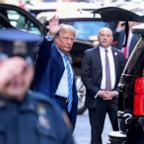BA, American and Iberia sign deal
— -- American Airlines and British Airways — twice rebuffed in efforts to effectively merge their trans-Atlantic operations under a grant of antitrust immunity — formally requested immunity again Thursday, this time along with partners Iberia, Finnair and Royal Jordanian.
The difference this time, says American CEO Gerard Arpey, is that trans-Atlantic service between the USA and London's Heathrow Airport, Europe's busiest and most lucrative hub, is no longer limited to just American, United, BA and Virgin Atlantic. Those restrictions disappeared in March when the new "Open Skies" agreement between the USA and British Airways took effect.
Since then, at least 20 new flights a day have been launched between Heathrow and the USA, most by carriers who are members of the Star and SkyTeam global airline alliances which compete with the BA- and American-led oneworld alliance. Star members including United, US Airways and Lufthansa have launched six new USA-Heathrow flights a day. Delta, Northwest, Air France and KLM, all members of the SkyTeam grouping, have launched or announced seven new USA-Heathrow flights since March. In most cases, the carriers offering those new flights operate them under the kind of antitrust immunity that BA and American are seeking.
Arpey said in an interview Thursday that he believes the chances of American and British Airways getting antitrust immunity from the U.S. Department of Transportation are "very good" this time around.
In 2002, the Department of Transportation ruled that the pair could get immunity for trans-Atlantic operations only if they agreed to give up 224 time-specific landing and takeoff rights, called slots, which is enough to operate 16 flights a day. At the time, that equaled the total number of slots held by American. In the mid-1990s American and BA withdrew an immunity application when talks between the USA and the United Kingdom failed to produce a deal. Those talks broke down primarily over BA's unwillingness to give up hundreds of Heathrow slots for free that competitors could pick up.




